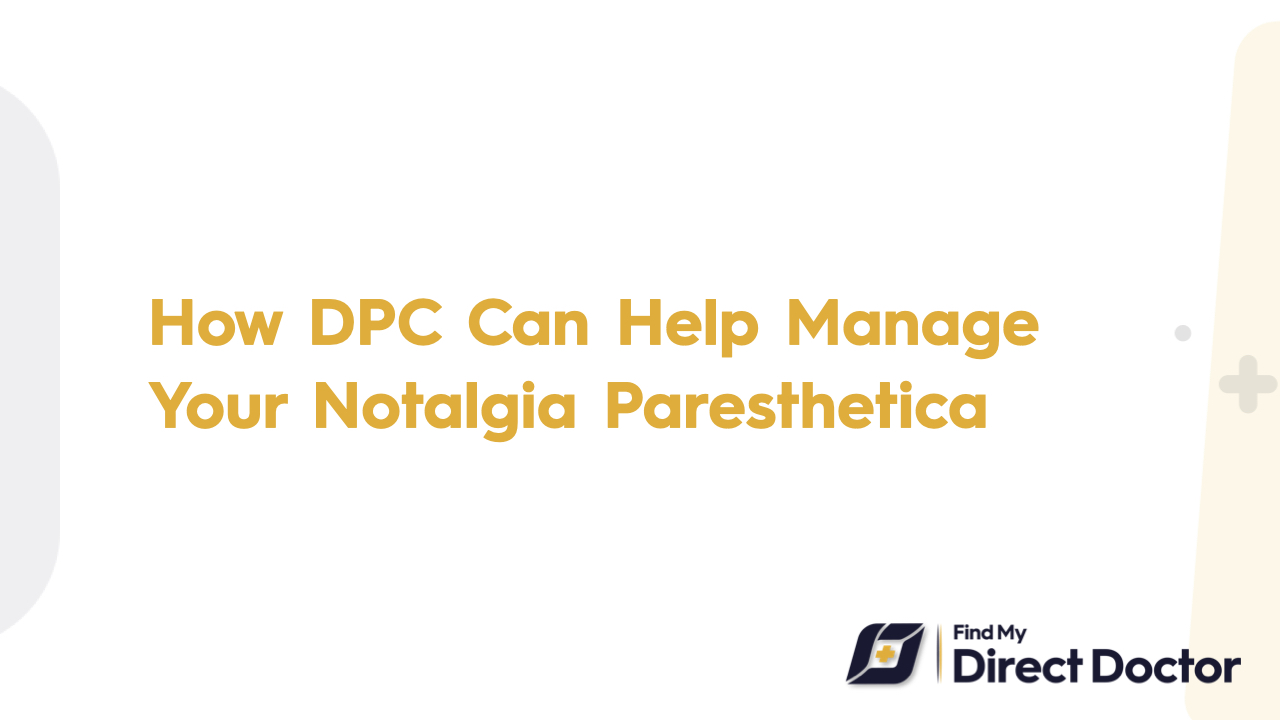



Notalgia Paresthetica is a skin disorder that usually affects the upper back, near the shoulder blades, and is characterized by localized itching and a tingling or numbness sensation. It is brought on by an inflamed or compressed nerve in the spine, which results in aberrant nerve signals. The main symptom is severe, persistent itching, which is frequently accompanied by hyperpigmentation and other textural changes in the skin. Although the precise etiology of Notalgia Paresthetica is not usually known, diseases affecting the spine, such as scoliosis or degenerative disc disease, or injury to the nerves are frequently implicated.

By giving patients constant, direct access to their healthcare providers, Direct Primary Care (DPC) offers a customized, easily accessible method of addressing Notalgia Paresthetica. Notalgia Paresthetica can be treated more proactively in DPC, with the clinician providing routine assessments to track any symptom progression or changes. In order to relieve itching and discomfort, providers in a DPC setting can collaborate closely with experts, suggest treatments like physical therapy, topical medicines, or nerve-blocking therapies, and swiftly modify treatment plans.
DPC provides a number of advantages for people with Notalgia Paresthetica, such as increased time spent with their healthcare provider and a deeper comprehension of their disease. DPC makes it possible to provide more individualized and ongoing care with fewer patients, ensuring that patients don't feel hurried or ignored. In order to manage disorders like Notalgia Paresthetica, where early management can help avoid additional nerve damage, DPC also places a strong emphasis on preventative therapy. Higher levels of satisfaction and improved symptom management result from this degree of care, which makes sure that patients feel listened to and supported during their course of therapy.
The treatment of Notalgia Paresthetica is very customized in Direct Primary Care. In order to create a customized treatment plan that meets each patient's needs, the healthcare professional takes the time to learn about their unique symptoms and medical background. Patients gain from constant communication with their healthcare practitioner, which enables prompt care modifications in the event that symptoms alter. DPC provides a thorough approach to managing Notalgia Paresthetica, guaranteeing that every patient receives the most efficient and individualized care possible, whether through physical therapy, medicine, or lifestyle recommendations.